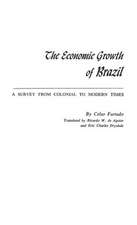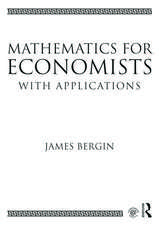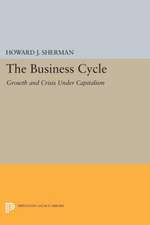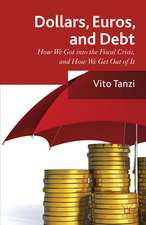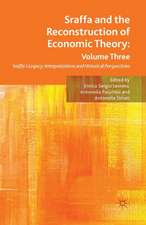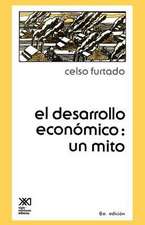Economic Development of Latin America: Historical Background and Contemporary Problems: Cambridge Latin American Studies, cartea 8
Autor Celso Furtado Traducere de Suzette Macedoen Limba Engleză Paperback – 28 apr 1977
Din seria Cambridge Latin American Studies
-
 Preț: 231.54 lei
Preț: 231.54 lei - 9%
 Preț: 593.09 lei
Preț: 593.09 lei -
 Preț: 200.78 lei
Preț: 200.78 lei -
 Preț: 198.38 lei
Preț: 198.38 lei -
 Preț: 236.92 lei
Preț: 236.92 lei -
 Preț: 188.27 lei
Preț: 188.27 lei -
 Preț: 236.99 lei
Preț: 236.99 lei -
 Preț: 322.67 lei
Preț: 322.67 lei -
 Preț: 289.01 lei
Preț: 289.01 lei -
 Preț: 526.45 lei
Preț: 526.45 lei -
 Preț: 209.07 lei
Preț: 209.07 lei - 11%
 Preț: 691.66 lei
Preț: 691.66 lei -
 Preț: 257.52 lei
Preț: 257.52 lei -
 Preț: 290.62 lei
Preț: 290.62 lei -
 Preț: 238.63 lei
Preț: 238.63 lei -
 Preț: 234.31 lei
Preț: 234.31 lei - 9%
 Preț: 594.05 lei
Preț: 594.05 lei -
 Preț: 156.72 lei
Preț: 156.72 lei - 11%
 Preț: 591.79 lei
Preț: 591.79 lei - 14%
 Preț: 732.69 lei
Preț: 732.69 lei -
 Preț: 325.38 lei
Preț: 325.38 lei - 11%
 Preț: 694.91 lei
Preț: 694.91 lei -
 Preț: 328.56 lei
Preț: 328.56 lei -
 Preț: 321.74 lei
Preț: 321.74 lei - 5%
 Preț: 306.74 lei
Preț: 306.74 lei -
 Preț: 287.07 lei
Preț: 287.07 lei -
 Preț: 284.98 lei
Preț: 284.98 lei -
 Preț: 287.66 lei
Preț: 287.66 lei -
 Preț: 284.39 lei
Preț: 284.39 lei -
 Preț: 318.84 lei
Preț: 318.84 lei -
 Preț: 287.28 lei
Preț: 287.28 lei -
 Preț: 191.51 lei
Preț: 191.51 lei -
 Preț: 322.51 lei
Preț: 322.51 lei - 23%
 Preț: 582.60 lei
Preț: 582.60 lei
Preț: 285.16 lei
Nou
Puncte Express: 428
Preț estimativ în valută:
54.57€ • 57.09$ • 45.33£
54.57€ • 57.09$ • 45.33£
Carte tipărită la comandă
Livrare economică 03-17 aprilie
Preluare comenzi: 021 569.72.76
Specificații
ISBN-13: 9780521290708
ISBN-10: 0521290708
Pagini: 336
Dimensiuni: 138 x 216 x 23 mm
Greutate: 0.39 kg
Ediția:Revizuită
Editura: Cambridge University Press
Colecția Cambridge University Press
Seria Cambridge Latin American Studies
Locul publicării:New York, United States
ISBN-10: 0521290708
Pagini: 336
Dimensiuni: 138 x 216 x 23 mm
Greutate: 0.39 kg
Ediția:Revizuită
Editura: Cambridge University Press
Colecția Cambridge University Press
Seria Cambridge Latin American Studies
Locul publicării:New York, United States
Cuprins
Tables; Preface to second edition; Preface to first edition; Abbreviations; Maps; Part I. From the Conquest to the Formation of Nation-States: 1. Introduction: the land and the people; 2. Economic and social background of the territorial occupation; 3. First half of the nineteenth century; Part II. Entry into the System of International Division of Labour: 4. The transformation of international trade in the second half of the nineteenth century and its impact on Latin America; 5. Reorientation of the international economy in the present century; 6. Some indicators of the degree of development reached in Latin America; Part III. The Traditional Structural Pattern: 7. Characteristics of agrarian structures; 8. Distribution and utilisation of the social income; 9. Monetary and foreign exchange systems; Part IV. Characteristics of the Industrialisation Process: 10. The industrialisation process (i); 11. The industrialisation process (ii); 12. Imbalances created by import-substituting industrialisation: structural inflation; Part V. Reorientation of Development in the Recent Period: 13. Evolution of macroeconomic structures; 14. Agricultural sector; 15. Industrial sector; 16. Inadequate growth and the reorientation of development; Part VI. International Relations: 17. Traditional forms of external dependence; 18. New forms of external dependence; 19. Towards the restructuring of the international economy; Part VII. Intra-Regional Relations: 20. Integration process in Central America; 21. LAFTA and the Andean group; Part VIII. Structural Reconstruction Policies: 22. Economic planning experiments; 23. Agrarian reforms; 24. Economic aspects of the Cuban Revolution; 25. Present problems and prospects; Bibliography; Index.
Recenzii
'Probably the most thorough overview of Latin American economic history presently available … Furtado's most important characteristic as an economist is willingness to consider economic problems in their total complexity; there are no simplifications here and no easy conclusions …'. Choice
'Professor Furtado's approach is highly professional. He leads his reader with academic thoroughness from a preliminary analysis of the historical roots of Latin Americna social and economic institutions, through the period of the industrial revolution to a more detailed study of such aspects of his subject as foreign trade, regional integration, agrarian reform and restructuring for the future.' Economist
' … surprisingly successful, eminently readable and a mine of useful information and ideas for the economic historian or development economist turning his attention to this area … even the expert might be glad to have this well-informed and well-stocked volume on his shelves.' Economic Journal
'Professor Furtado's approach is highly professional. He leads his reader with academic thoroughness from a preliminary analysis of the historical roots of Latin Americna social and economic institutions, through the period of the industrial revolution to a more detailed study of such aspects of his subject as foreign trade, regional integration, agrarian reform and restructuring for the future.' Economist
' … surprisingly successful, eminently readable and a mine of useful information and ideas for the economic historian or development economist turning his attention to this area … even the expert might be glad to have this well-informed and well-stocked volume on his shelves.' Economic Journal

